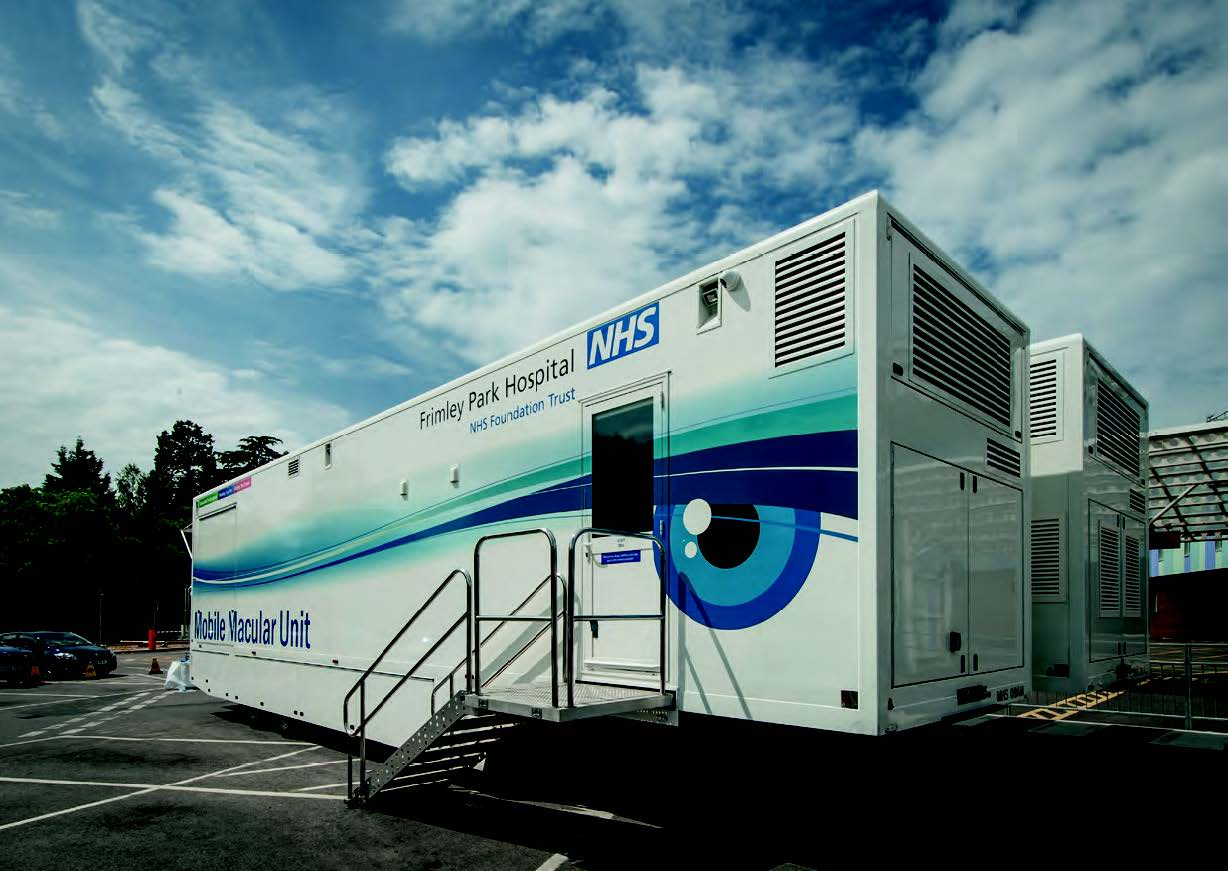
This article explores how the evolution of mobile healthcare facilities is helping the NHS to overcome capacity and service delivery challenges.
Recent newspaper reports have highlighted the current crisis within the NHS, with appointments being cancelled and hospitals lacking the beds and staff they need to meet the needs of a growing number of patients.
Offsite construction methods offer significant opportunities to help address demand and provide the additional infrastructure needed, whether that is solely during the busy winter period, or on a more long-term basis.
And, of these methods, mobile buildings perhaps offer the biggest lifeline to the healthcare estate.
Looking to the future
Suzie Nield, EMS Healthcare’s business delivery manager, said: “Mobile medical units are an option that NHS trusts are turning to for the smooth delivery of patient care when disruption is suspected, often due to capacity strain, department refurbishment, or to quickly respond to emergency situations.
“Traditionally, they were utilised in a reactive way, but with an ageing population more at risk of chronic health conditions, capacity strains no longer come as a surprise, meaning issues can be identified earlier.
“Decision-makers are now being pro-active, looking ahead and identifying times in the year when they know strain or disruption is likely, and then planning for the use of mobile units during these periods.
“Our units have been designed over the years to provide additional capacity for a range of healthcare specialities including ophthalmology, endoscopy, renal dialysis and infusion. In some cases they are creating up to 250 additional patient slots a week”.
Uptake
“The quality and versatility of mobile or modular units is now so high that many patients prefer them, with 90% of patients finding attending mobile units more convenient.”
Not only can mobile units be shifted around on hospital sites, but they can also be taken into communities, for example offering breast cancer screening in supermarket carparks. This move has been found to increase take-up of critical services.
Improving the patient experience
“As demands on the NHS continue to rise, ensuring a positive patient experience is going to be extremely important,” said Nield.
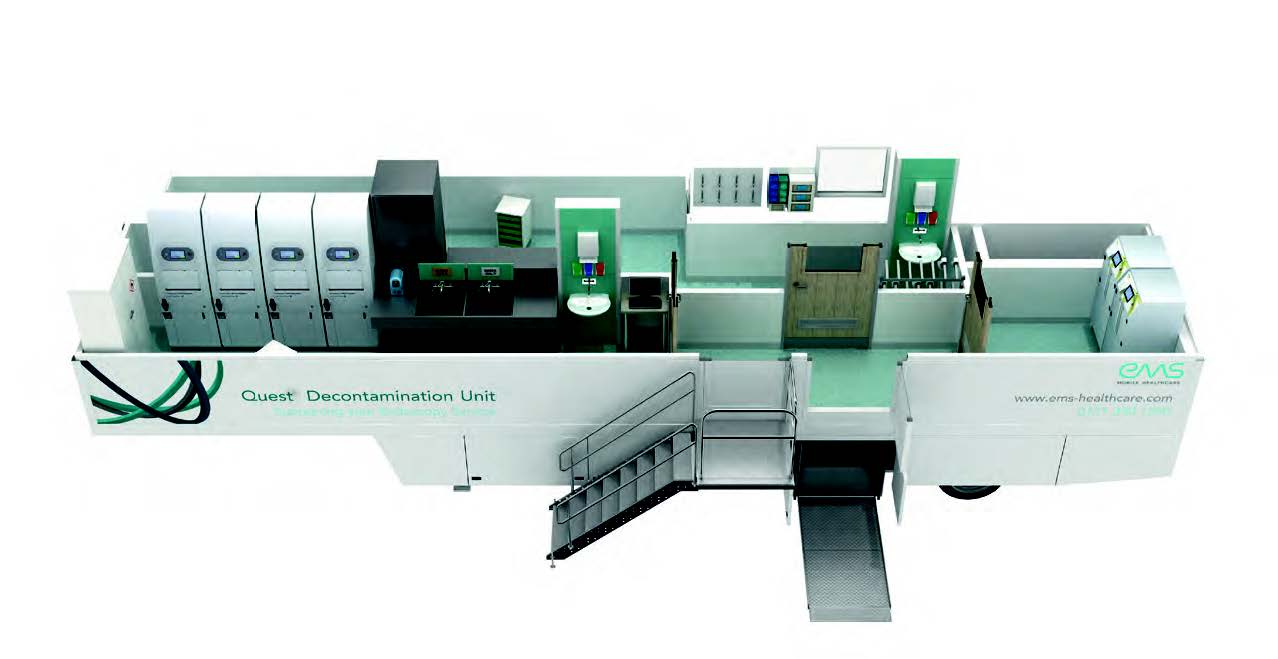
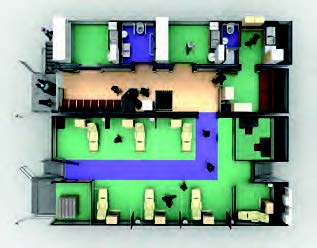
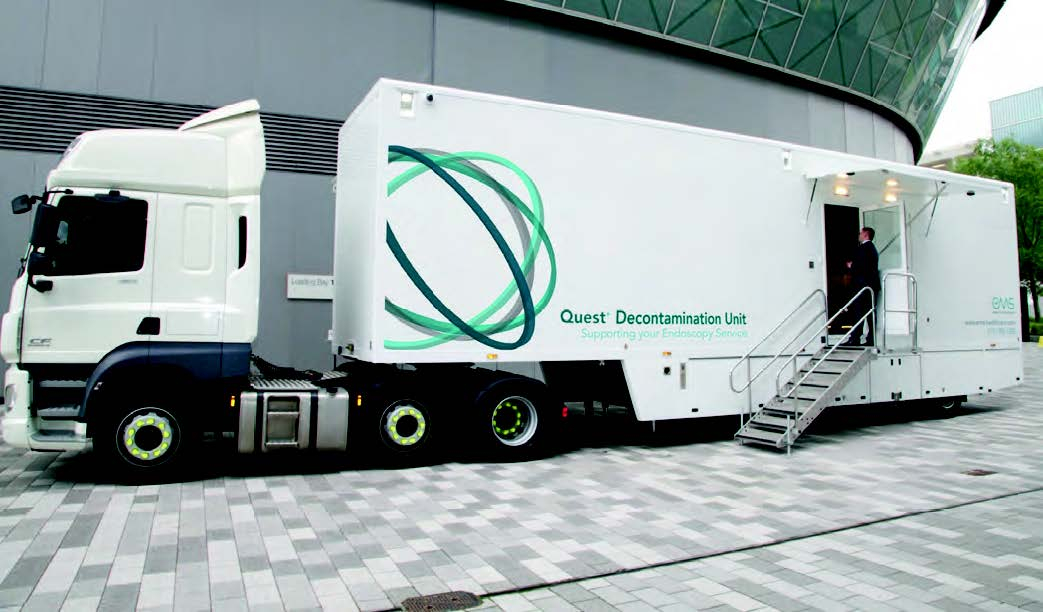
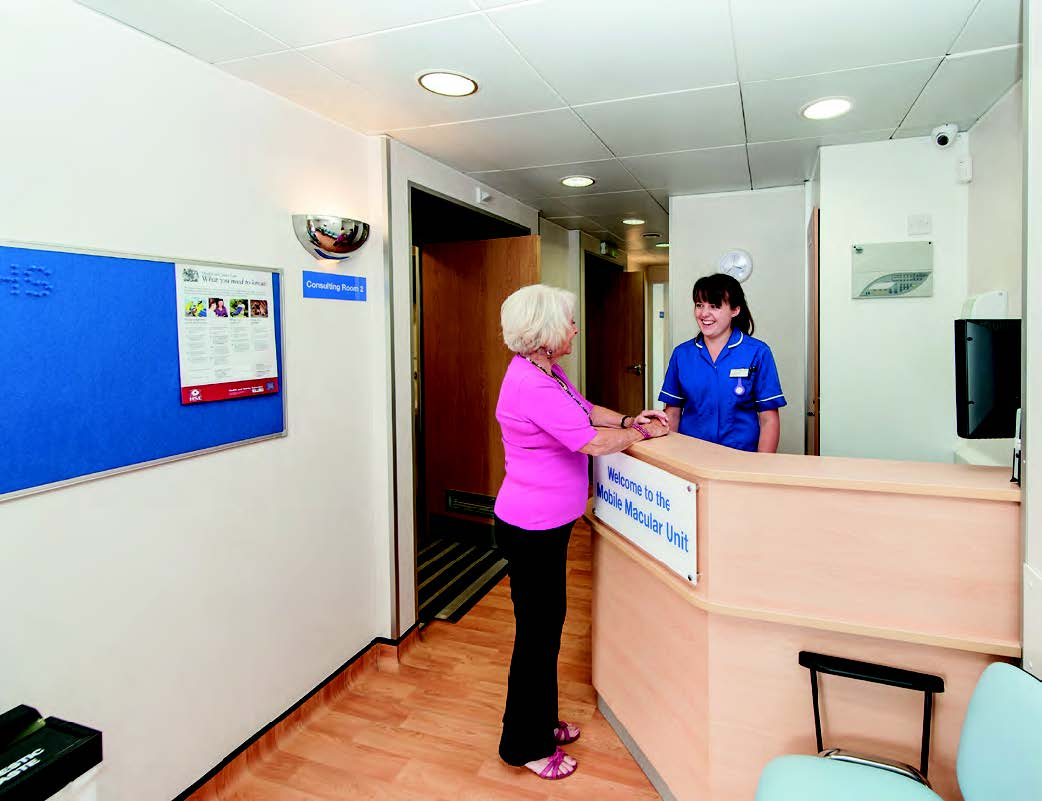
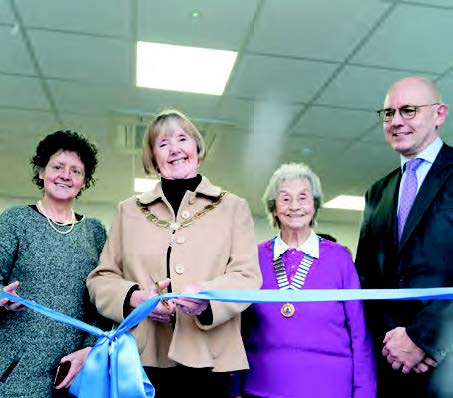
“Mobile units, in particular, have the capability to offer unprecedented levels of patient care, whether through the convenience of the location for those unable to travel far, or through low-cost, stress-free car parking.
“The key difference they offer over traditional buildings is, without doubt, the ease and speed of installation. Units can be modified to meet the needs of hospitals at a fraction of the cost and time associated with relocation within their current estate, or to build new, static premises.”
Case studies
Frimley Health NHS Foundation Trust
Ems addressed a waiting list backlog for ophthalmology with the supply of a Liberty mobile unit, comprising two interconnecting 40ft medical trailers.
An additional 12,500 clinic slots have been created per year, reducing waiting times from one hour 21 minutes to just 32 minutes on board the unit.
St George’s University Hospitals NHS Foundation Trust
A review called for the trust to urgently rebuild its 120-year-old Knightsbridge Wing. This left the hospital faced with the prospect of relocating its entire renal department to other locations, hospitals, or to satellite dialysis sites.
The Liberty Quad Renal Unit – EMS’s latest offering
This is the first mobile decontamination unit for endoscope reprocessing, which was created in conjunction with health trusts across the UK.
This now successfully facilitates uninterrupted services for patients directly at the St George’s site and with the same clinical team.
In order to in order to maintain service continuity, providers no longer have to use external decontamination services (an expensive process that can take days to complete) or transfer the decontamination suite to a new location within the hospital estate, which can often result in ward closures.
The Quest+ mobile system means hospitals can now continue endoscope reprocessing services on site more cost effectively and without disruption or any impact on capacity.
“It is collaborations such as this that will shape the way mobile solutions are used in the future, and means we will almost certainly continue to see mobile units being used across an increasing range of healthcare specialties,” said Nield.
Vanguard Healthcare
To address rising demand, this mobile healthcare provider has recently developed a purpose-built, 6,600sq m transport and logistics facility in Manningtree as part of a major expansion programme.
The unit has the capacity to house its full fleet of 50 mobile healthcare units which include mobile theatres, endoscopy units, day surgery facilities, and mobile wards and outpatient clinics.
To make it easier for cash-strapped NHS trusts to utilise these solutions, the company offers rental of units for between one day and several years. They can also be supplied fully equipped or ready to fit out.
It is this flexibility that makes mobile solutions popular.
Nield said, “Our mobile buildings come complete with all utilities and can be adapted to suit the trust and the purpose for which they are being used. For example, they can include waiting areas, changing rooms, toilets, clean and dirty utilities, and security systems. This means they are easy to set up and are ready to go as soon as they are on site, making them very popular with health trusts”.
In the future, she predicts that suppliers will continue to work with healthcare trusts to innovate through mobile and modular units that can be modified to provide solutions to a number of challenges. She says, “This will bring forward new, bespoke solutions that respond quickly and cost effectively to demand, especially as NHS trusts continue to become more commercial in their thinking”.